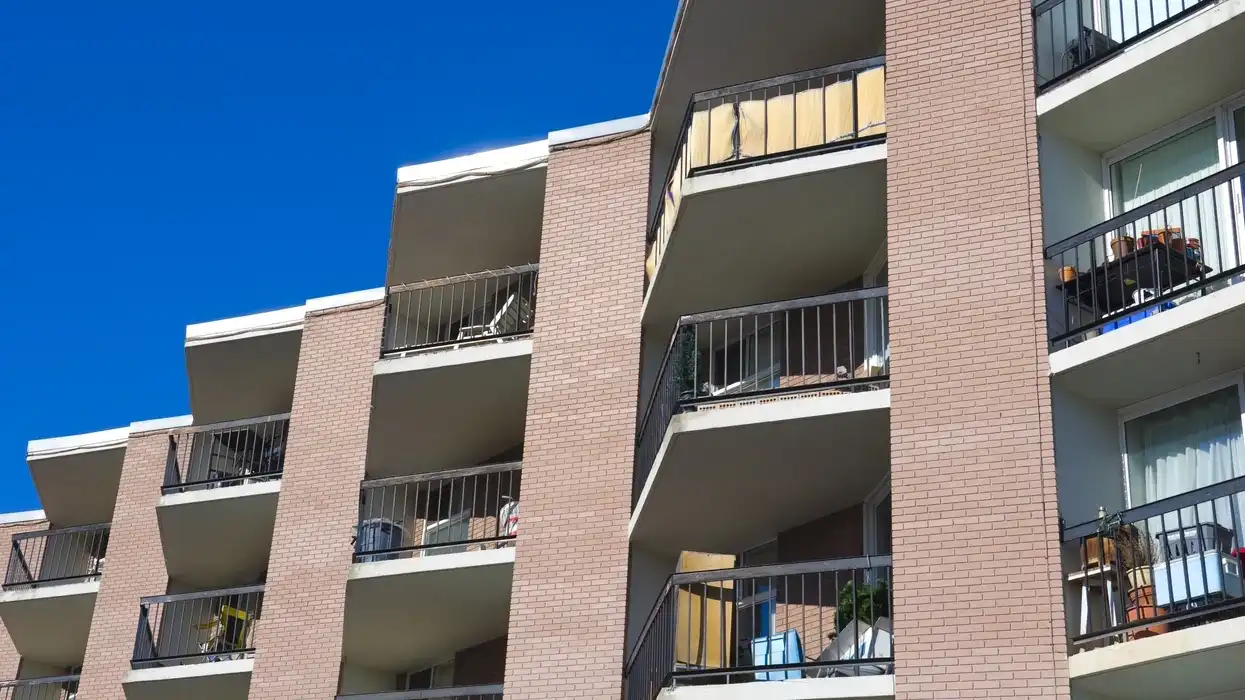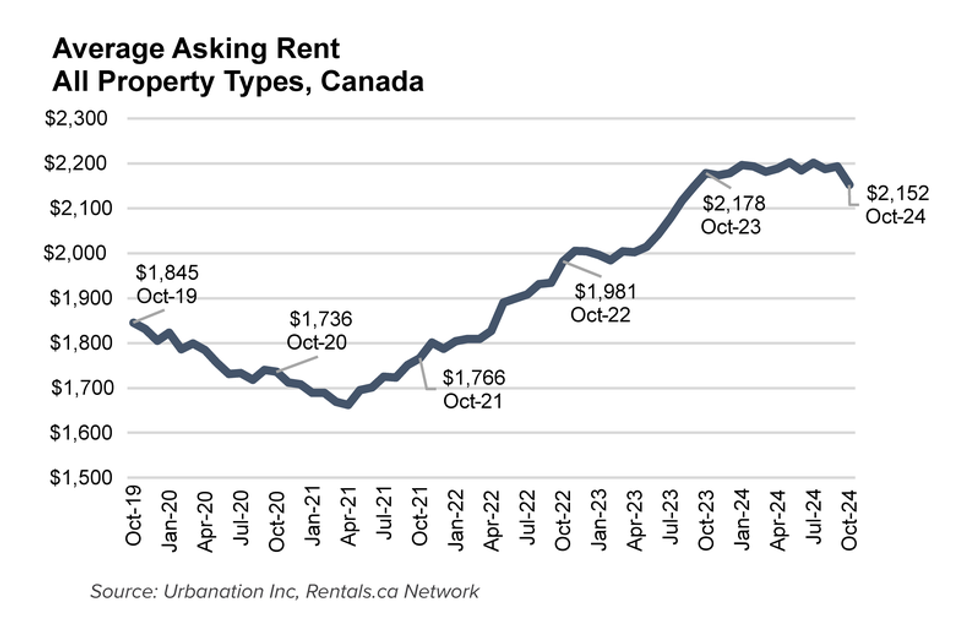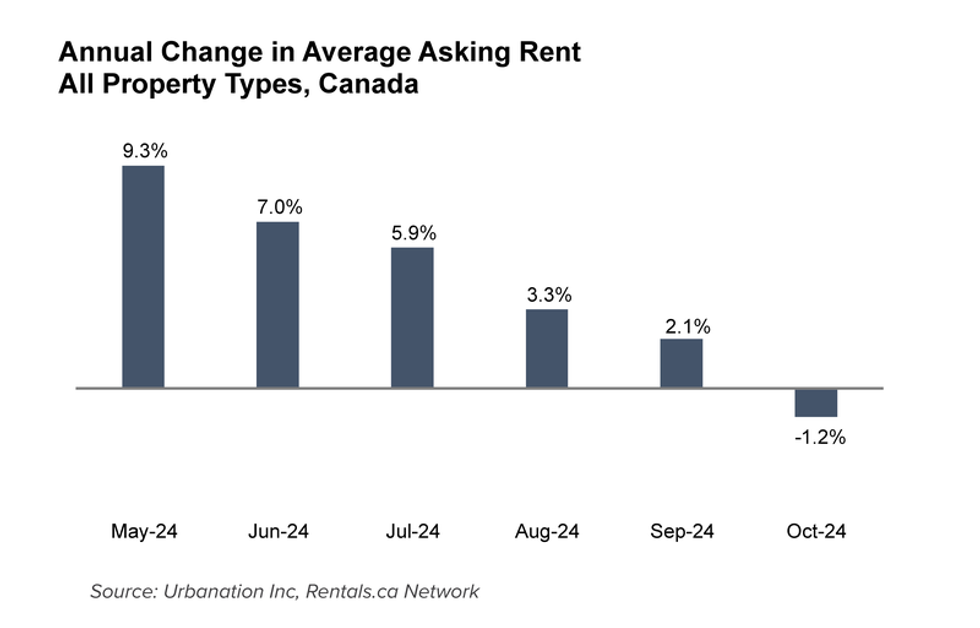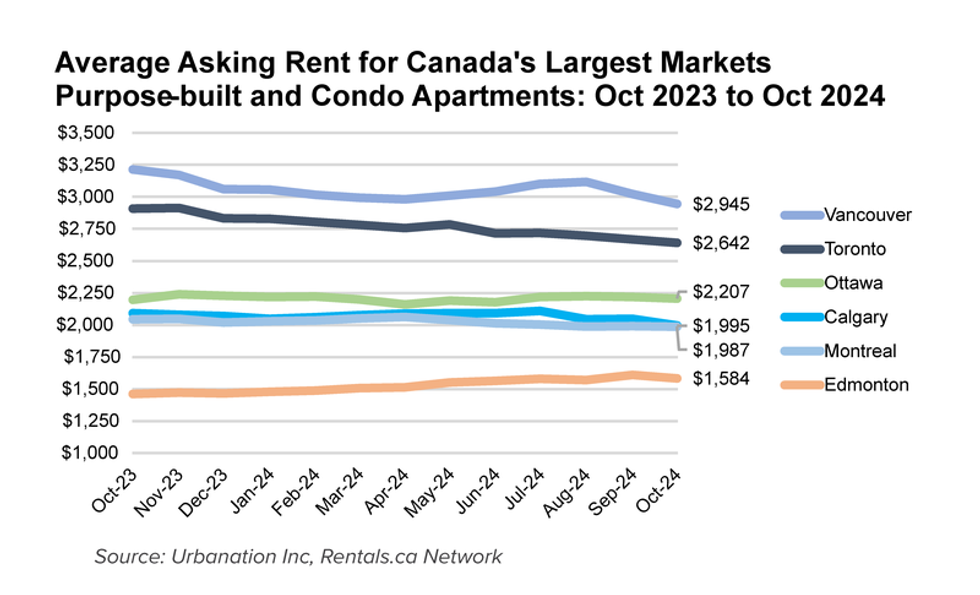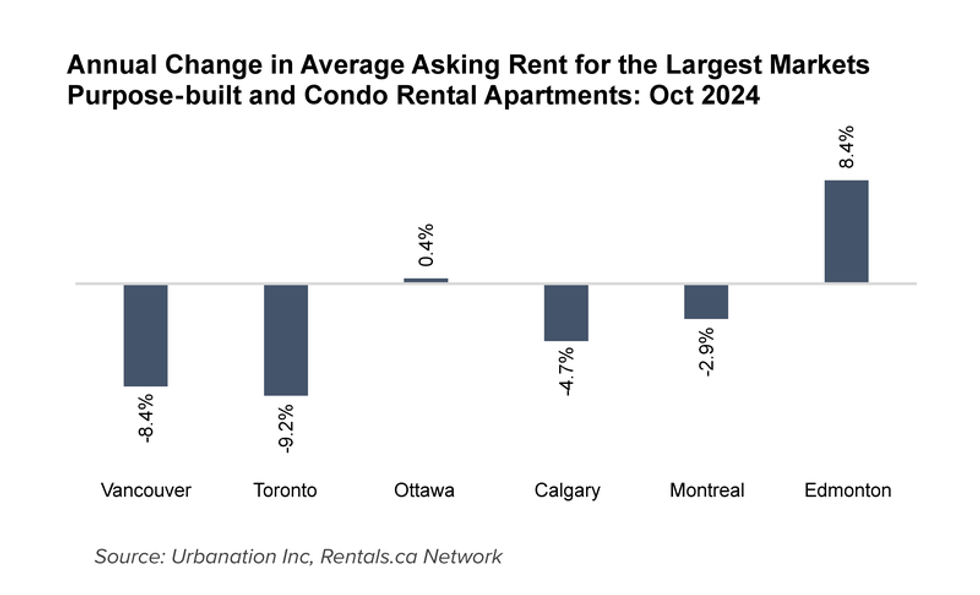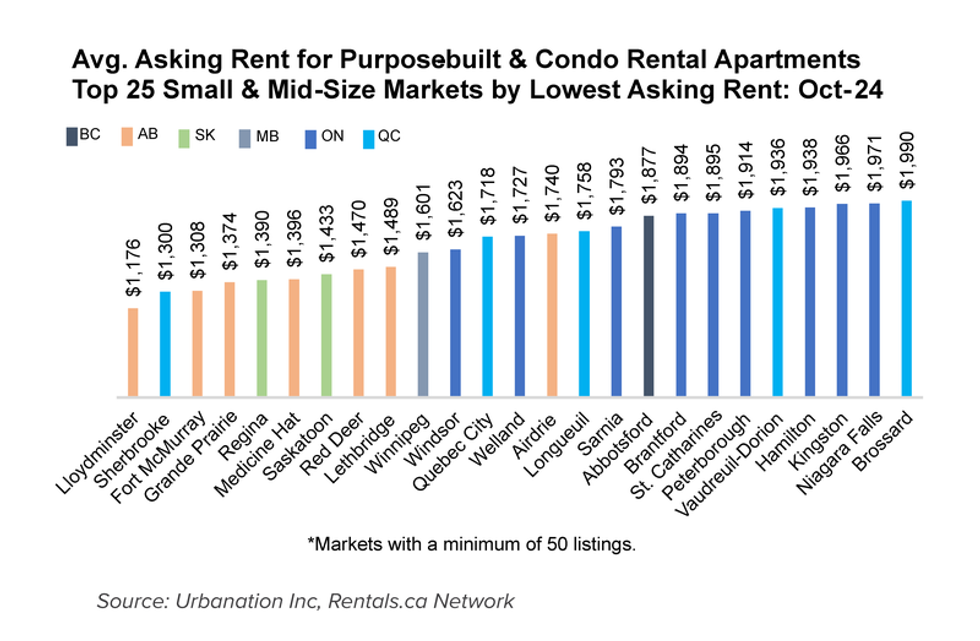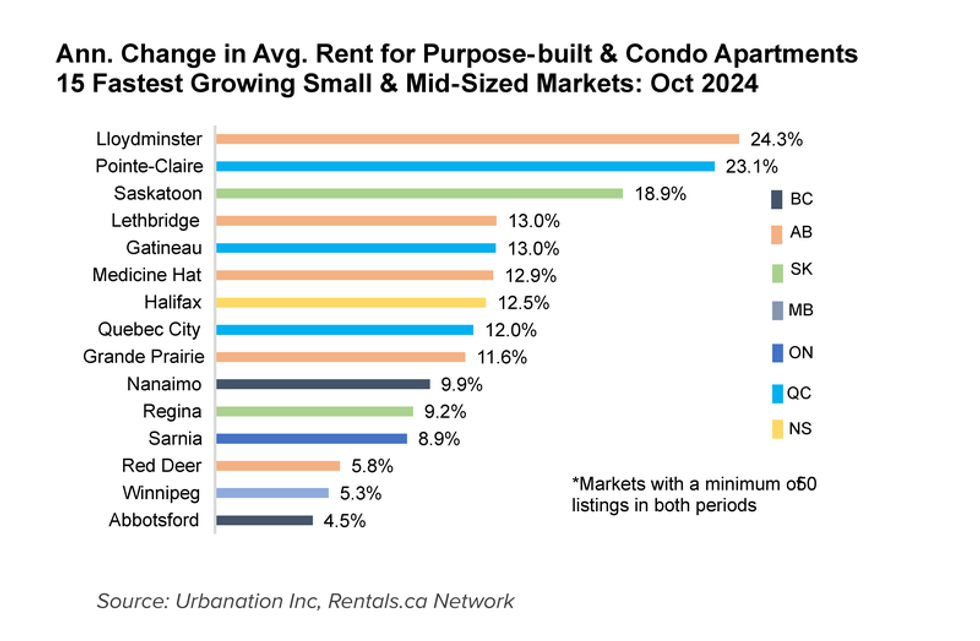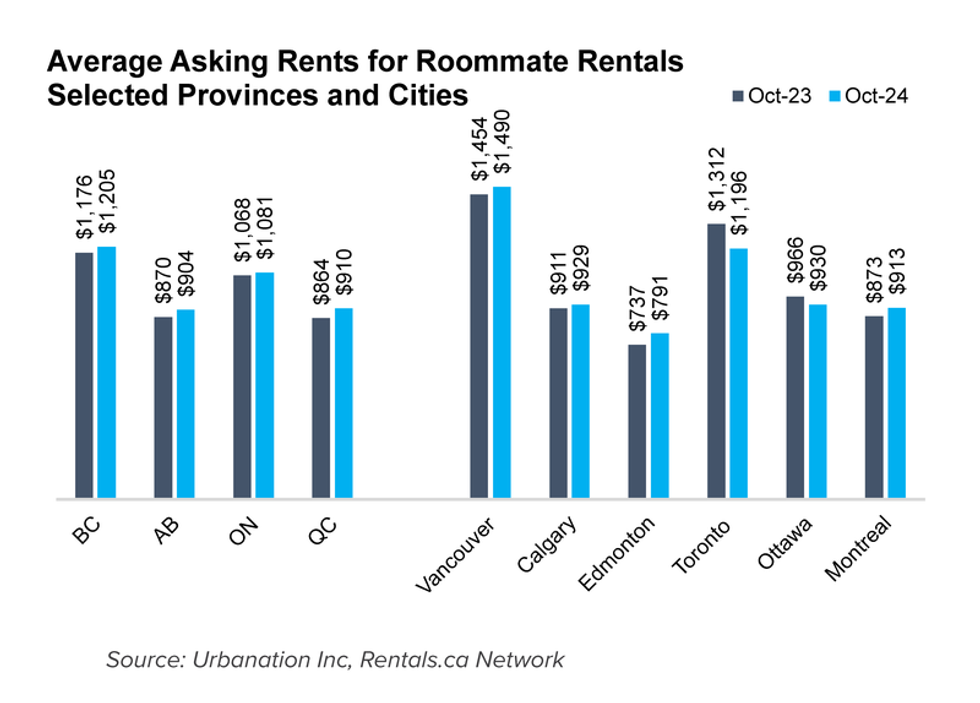Following a sluggish September, October was another remarkably slow month for the Canadian rental market. In fact, on a national basis, rates fell annually for the first time in over three years, according to a new report from Rentals.ca and Urbanation, released Thursday.
“It is a rare occurrence for rents to decline at the national level. This is happening as the key drivers of rent growth in recent years — a strengthening economy, quickly rising population, and worsening homeownership affordability — are beginning to reverse,” says Urbanation President Shaun Hildebrand in a release. “As a result, we can likely expect this trend for rents to continue in the near-term, particularly as apartment completions remain at record highs.”
The report shows a 1.2% drop off year over year, which is the the first decline in the metric since the pandemic (July 2021), which drove renters out of major cities like Toronto, Vancouver, and Montreal in favour of outskirt markets where there was better affordability.
Thursday’s report shows something of a renaissance of what happened back then. “Rent declines were mainly focused in larger cities within Ontario and BC, as well as in Calgary and Montreal,” it says. “Many smaller, more affordable markets across the country continued to post strong rent increases in October.”
Though Toronto and Vancouver remained two of the priciest Canadian markets last month, they also posted the sharpest year-over-year drops in average rent, at 9.2% (to $2,642) and 8.4% (to $2,945), respectively. As mentioned, annual drops were also recorded in Calgary, at 4.7% (to $1,995), and Montreal, at 2.9% ($1,987).
Conversely, a number of small and mid-sized cities saw double-digit year-over-year rent growth, with Lloydminster leading the pack with a 24.3% spike to $1,176. Lloydminster is also the country’s most affordable market, according to the report.
Other markets to see notable upticks included Pointe-Claire in Quebec with a 23.1% increase, Saskatoon with a 18.9% increase, Lethbridge with a 13% increase, and Gatineau with a 13.0% increase as well.
Rentals.ca and Urbanation’s latest data on shared accommodations also points to an increased emphasis on affordability. Roommate listings ended October up 12% month-over-month and 58% year over year.
“These units have become an important option for landlords and tenants alike, offering greater flexibility, affordability, and additional beds in neighbourhoods often underserved by conventional rentals,” the report says. “October was marked by an outsized increase in shared room rentals primarily in single-family homes.”
On a provincial basis, average rents for roommate accommodations increased the least in Ontario and BC — up 1.2% and 2.5%, respectively — however those provinces still had the highest overall rates, at $1,081 and $1,205. Additionally, Quebec saw a 5.3% increase to an average of $910, while Alberta posted a 3.9% increase to $904.
“Shared accommodation rents grew across most of the major cities tracked,” the report also says, pointing to an 8.9% annual decrease in Toronto to $1,196, a 7.3% annual increase in Edmonton to $791, and a 3.8% annual decrease in Ottawa to $930. As has been the case in past months, Vancouver was the most expensive city for shared accommodations with an average rent of $1,490, marking an increase of 2.4% annually.
- Roommate Rental Listings Up Nearly 50% Across Major Canadian Markets ›
- Canadian Rent Growth Slows To 3-Year Low As International Student Enrolments Plunge ›
- Purpose-Built Rental Starts “Nearly Quadrupled” In Past Decade ›
- Canadian Rents Decline To 15-Month Low In November ›
- Average Rent Hits 18-Month Low, "Improved Affordability" Ahead ›
- National Average Rent Sees 6th Straight YoY Decline In March ›
